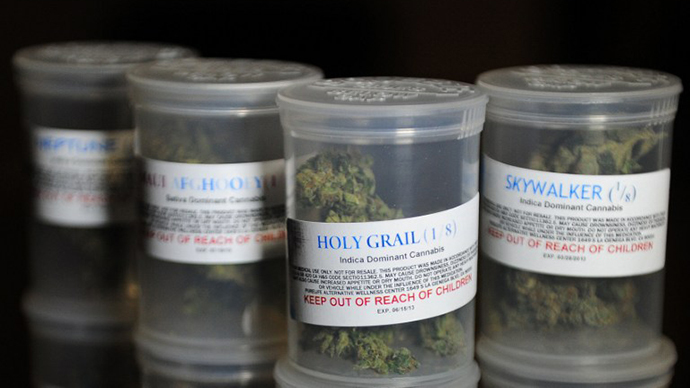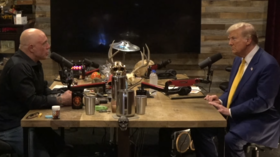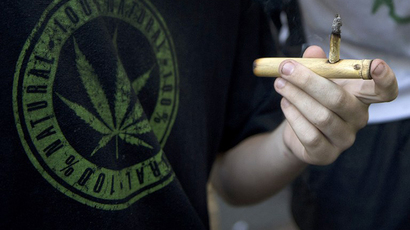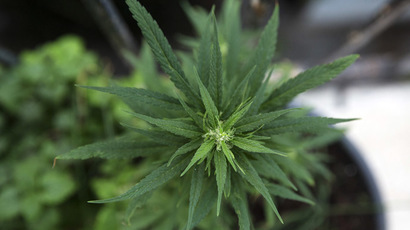Feds might allow researchers to study PTSD treatment with medical marijuana

After three years of trying, the University of Arizona is only one step away from obtaining permission from the US government to research the effectiveness of marijuana as treatment for post-traumatic stress disorder (PTSD) among military veterans.
On March 14, the Department of Health and Human Services became the second government agency to authorize the research proposal, leaving only the Drug Enforcement Administration as the remaining holdout. How long the DEA will take to approve the study is unknown, but the study’s lead researcher Suzanne Sisley believes that won’t be as hard as getting HHS onboard.
"This is a great day," said Sisley, a clinical assistant professor of psychology at the University of Arizona’s medical school, to the Los Angeles Times. "The merits of a rigorous scientific trial have finally trumped politics.”
"We never relented," she added. "But most other scientists have chosen not to even apply. The process is so onerous. With the implementation of this study and the data generated, this could lead to other crucial research projects."
According to USA Today, Sisley’s study will unfold over the course of 10 weeks and involve 50 veterans. In addition to study the effects of various doses of marijuana to treat PTSD, researchers will also try to determine whether or not there are any notable differences between smoking pot and vaporizing it.
Six states already list PTSD as a disorder that qualifies individual access to medical marijuana, but the government has typically enforced strict rules governing the ability of researchers to study the drug’s medical usefulness. If this research is successful, the Multidisciplinary Association for Psychedelic Studies believes it could eventually lead to a prescription drug.
"What that means is we have labels, lists of side effects, knowledge of different strains and how they have different effects," MAPS spokesman Brad Burge told USA Today.
Since marijuana is still classified as a Schedule I substance – typically reserved for drugs with no accepted medical use – obtaining it for research purposes has been difficult. Some Congress members have urged President Obama to remove marijuana from that classification, but in the meantime Rep. Earl Blumenauer (D-Ore.) believes researchers face “impossible burdens.”
"These are not people who are going to be involved with some clandestine production of the drug or do something nefarious. They are trying to do scientific research that will add to the body of knowledge and safety," he told the LA Times.
As noted by the Associated Press, somewhere between 11 and 20 percent of all soldiers who served in Iraq and Afghanistan suffer from PTSD, as well as 7.7 million Americans total.














